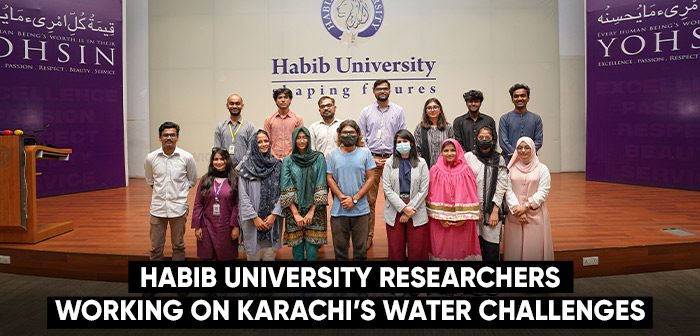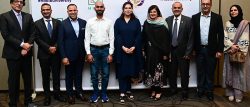Karachi Water Project (KWP) is an interdisciplinary research project that seeks to develop innovative and indigenous solutions to Karachi’s water challenges. This project is headed by Dr. Hassaan F. Khan, Assistant Professor of Environmental Sciences at Habib University. This research initiative is currently funded through the largest external research grant received by Habib University (PKR 18.2 million) from the Higher Education Commission, as part of HEC’s National Research Program for Universities (NRPU) funding call for 2020. KWP’s diverse research team includes Water Scientists, Electrical Engineers, Economists, Urban Planners, Sociologists and Computer Scientists. Additionally, the project has collaborations with researchers from other universities, most notably IBA and LUMS.
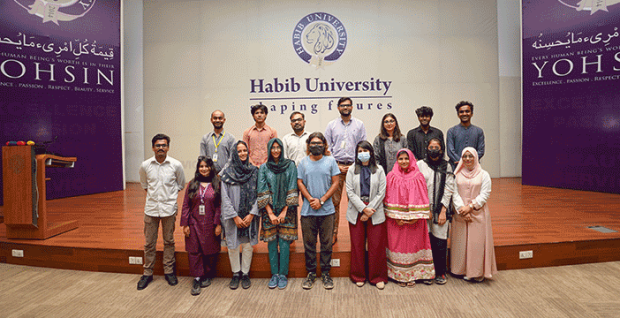
The team behind the initiative of Karachi water project at Habib University
KWP is currently engaged in four ongoing studies to address Karachi’s water challenges. The first study focuses on household water demands for which researchers are indigenously designing and developing a cost-effective smart device that is able to measure and transmit water use information in real time.

Integrating the Programme code to the hardware
The second study aims to understand the economics of water in Karachi through field surveys and interviews across the city to quantify the ability and willingness of households to pay for water services.
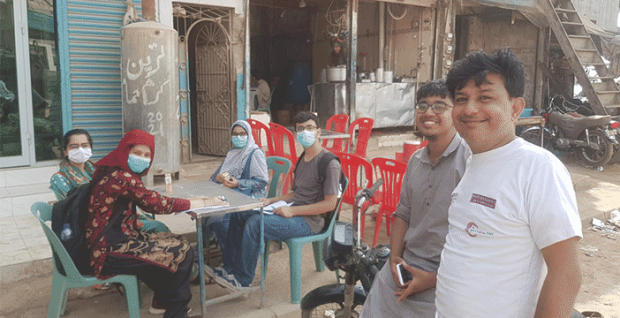
The research team on ground, taking a break from the survey
The third study seeks to quantify factors that limit the ability of residents to access water even when water might be available. For this study we are using Lyari as a case-study where there are huge disparities in people’s access to water due to socioeconomic factors.
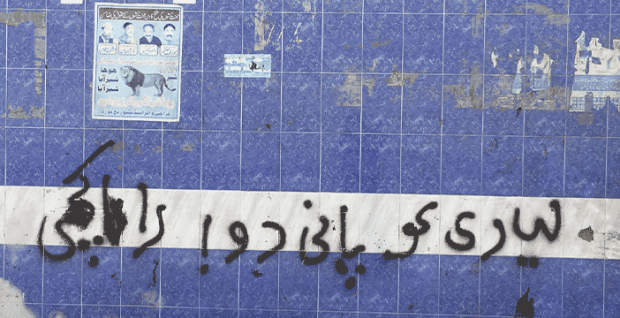
Slogan on the walls of Lyari, demanding drinking water
Finally, the fourth study involves quantifying water use and factors that affect water use in low-income water scarce neighborhoods.
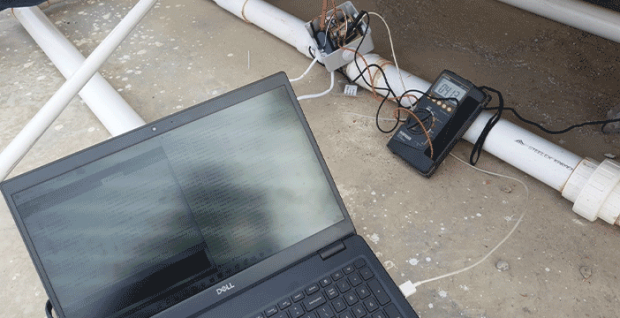
Testing of the device to measure the transmission of water
All these studies are closely linked together, and their combined outputs aim to inform water supply investments into Karachi’s water infrastructure and help the city’s water utility improve water services in a sustainable manner.
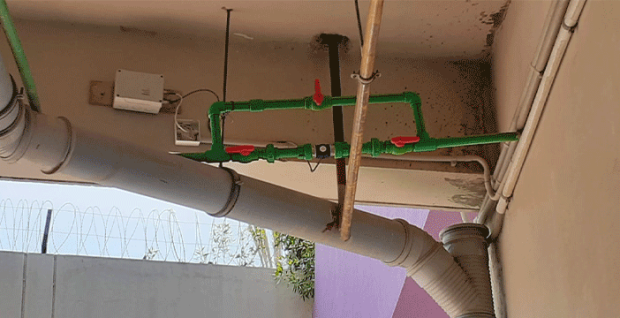
Installation of new pipelines to supply water for households
Researchers at Habib University in Karachi have recently published an innovative study on household water access in Lyari township in the prestigious Journal of Hydrology, titled Beyond water scarcity: Water (in)security and social justice in Karachi. This work was conducted as part of the Karachi Water Project (KWP).
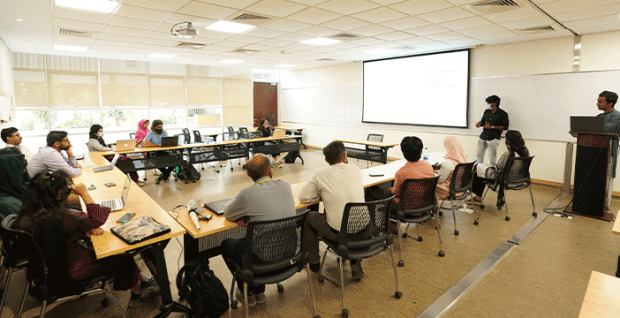
Habib’s research team working on finding economical solutions to Karachi’s water problem
The article, authored by Dr. Hassaan F. Khan, Director of the Karachi Water Project, and Syed Ali Arshad (SDP alumni 2020) quantifies factors that contribute to household water insecurity beyond just a “shortage” of water which tends to hijack almost all discourse on water in Karachi. This study focuses on the low-income and multi-ethnic settlement of Lyari situated at the tail-end of the water supply network. Using a mixed-methods approach, the researchers conducted a total of 465 household surveys supplemented with participant observation and stakeholder interviews. All the field work for this study was done by Habib University’s undergraduate researchers.
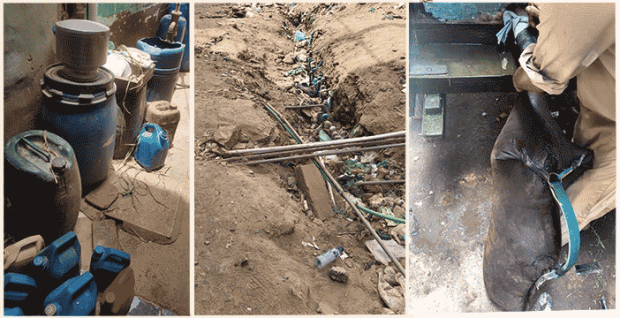
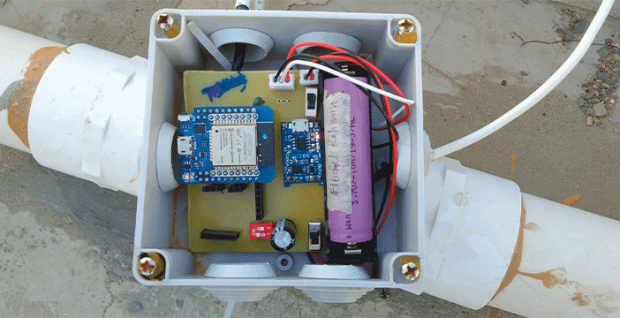 The study finds that weak water governance in Lyari pushes vulnerable sections of the population further to the margins. The intermittent piped water supply in Lyari is inadequate, unsafe, unreliable, and inconvenient. This forces many households to resort to additional costlier and inconvenient sources of water and leads to severe inequities in water access. Lower-Income populations are especially affected and pay disproportionately higher amounts for a much lower water consumption.
The study finds that weak water governance in Lyari pushes vulnerable sections of the population further to the margins. The intermittent piped water supply in Lyari is inadequate, unsafe, unreliable, and inconvenient. This forces many households to resort to additional costlier and inconvenient sources of water and leads to severe inequities in water access. Lower-Income populations are especially affected and pay disproportionately higher amounts for a much lower water consumption.
The study argues that Lyari’s water problems, and those of similar settlements across Karachi, cannot be resolved by simply increasing water supply. While more piped water will help, results suggest that even with supply augmentations, Lyari and other similar settlements need institutional structures and policies to ensure equitable and more than just access to the water network.
You can check out the full insights of the research paper by accessing link below here: https://www.sciencedirect.com/science/article/pii/S2214581822001537

